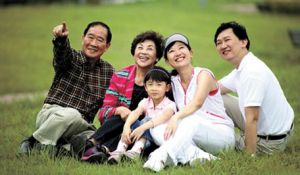The New Law on the Protection of the Rights and Interests of the Elderly
The New Law on the Protection of the Rights and Interests of the Elderly, ratified July 1, 2013, is the amended version of a law established to protect the rights and interests of China’s aging population.
China is home to a growing number of empty-nesters whose children have left home or migrated to larger cities. The new law stipulates that children must visit their parents regularly, or else their parents will have grounds to sue.
Although the law doesn’t specify how often adult children must visit their parents, it does state that the spiritual needs of the elderly should not be ignored. The law also prohibits discriminating against, insulting, abandoning and otherwise mistreating the elderly.
Because of family-planning policies implemented in the late 1970s, most senior citizens have only one child. The new law stipulates that China should build a comprehensive system for taking care of those senior citizens especially.
The law also stipulates that the country should establish a fundamental insurance system for the elderly. Average pensions will also be increased to reflect the growing consumer price index (CPI) and rising average incomes.
A provision requiring a long-term, nationwide healthcare plan for the elderly also stipulates that local governments subsidize healthcare for any elderly persons who cannot take care of themselves and cannot afford medical attention.
The law encourages the development in community service involving the elderly.
Zhang Haiyan, deputy director of the Heilongjiang Legal Assistance Center, said the law offers an overview of the government’s duties to its aging citizenry, both physical and spiritual.
Filial piety, or great respect for one’s elders, has long been a core Chinese virtue.
